I have an innoDB table named "transaction" with ~1.5 million rows. I would like to partition this table (probably on column "gas_station_id" since it is used a lot in join queries) but I've read in MySQL 5.7 Reference Manual that
All columns used in the table's partitioning expression must be part of every unique key that the table may have, including any primary key.
I have two questions:
- The column "gas_station_id" is not part of unique key or primary key. How could I partition this table then?
- even if I could partition this table, I am not sure which partitioning type would be better in this case? (I was thinking about LIST partitioning (we have about 40 different(distinct) gas stations) but I am not sure since there will be only one value in each list partition like the following :
ALTER TABLE transaction PARTITION BY LIST(gas_station_id) ( PARTITION p1 VALUES IN (9001), PARTITION p2 VALUES IN (9002),.....) - I tried partitioning by
KEY, but I receive the following error (I think because id is not part of all unique keys..):
#1053 - a UNIQUE INDEX must include all columns in the table's partitioning function
This is the structure of the "transaction" table:
EDIT and this is what SHOW CREATE TABLE shows:
CREATE TABLE `transaction` (
`id` int(11) NOT NULL AUTO_INCREMENT,
`terminal_transaction_id` int(11) NOT NULL,
`fuel_terminal_id` int(11) NOT NULL,
`fuel_terminal_serial` int(11) NOT NULL,
`xboard_id` int(11) NOT NULL,
`gas_station_id` int(11) NOT NULL,
`operator_id` varchar(16) NOT NULL,
`shift_id` int(11) NOT NULL,
`xboard_total_counter` int(11) NOT NULL,
`fuel_type` tinyint(2) NOT NULL,
`start_fuel_time` int(11) NOT NULL,
`end_fuel_time` int(11) DEFAULT NULL,
`preset_amount` int(11) NOT NULL,
`actual_amount` int(11) DEFAULT NULL,
`fuel_cost` int(11) DEFAULT NULL,
`payment_cost` int(11) DEFAULT NULL,
`purchase_type` int(11) NOT NULL,
`payment_ref_id` text,
`unit_fuel_price` int(11) NOT NULL,
`fuel_status_id` int(11) DEFAULT NULL,
`fuel_mode_id` int(11) NOT NULL,
`payment_result` int(11) NOT NULL,
`card_pan` varchar(20) DEFAULT NULL,
`state` int(11) DEFAULT NULL,
`totalizer` int(11) NOT NULL DEFAULT '0',
`shift_start_time` int(11) DEFAULT NULL,
PRIMARY KEY (`id`),
UNIQUE KEY `terminal_transaction_id` (`terminal_transaction_id`,`fuel_terminal_id`,`start_fuel_time`) USING BTREE,
KEY `start_fuel_time_idx` (`start_fuel_time`),
KEY `fuel_terminal_idx` (`fuel_terminal_id`),
KEY `xboard_idx` (`xboard_id`),
KEY `gas_station_id` (`gas_station_id`) USING BTREE,
KEY `purchase_type` (`purchase_type`) USING BTREE,
KEY `shift_start_time` (`shift_start_time`) USING BTREE,
KEY `fuel_type` (`fuel_type`) USING BTREE
) ENGINE=InnoDB AUTO_INCREMENT=1665335 DEFAULT CHARSET=utf8 ROW_FORMAT=COMPACT
